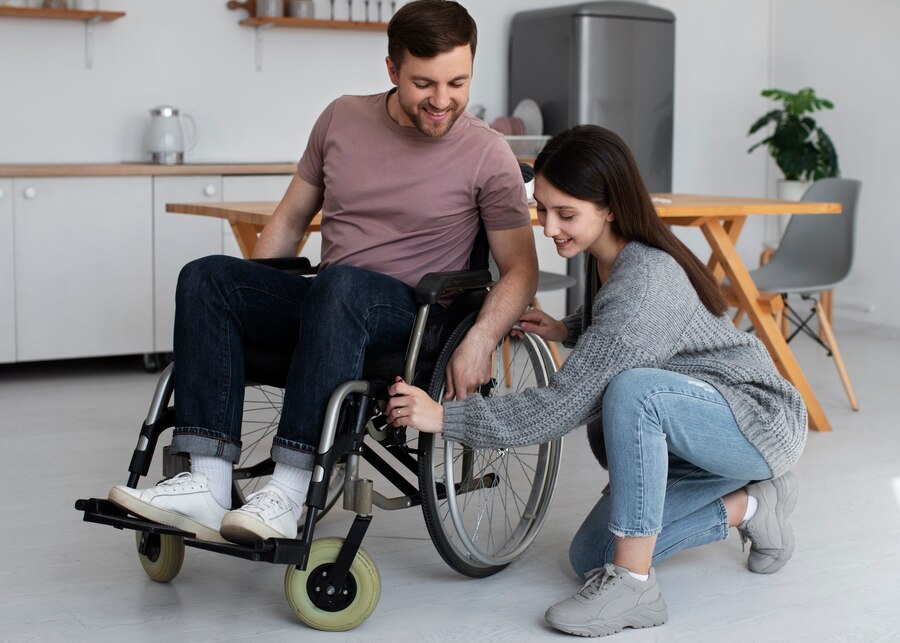Picking the best wheelchair cushion is crucial for comfort, skin protection, and overall well-being, especially if you spend long periods in your wheelchair. Here’s a guide to help you make an informed decision based on your needs, preferences, and lifestyle:
1. Consider Your Primary Need
The first step is identifying your primary need for the cushion:
- Pressure relief: If you’re prone to pressure sores or need extra support, look for cushions designed to distribute weight evenly and reduce pressure.
- Comfort: If comfort is your main concern, a soft cushion might be more suitable for you, though it should still provide enough support.
- Posture support: A cushion with firm support can help maintain proper posture throughout the day.
2. Material Choices
There are several types of materials to choose from, each with its own set of benefits:
- Foam Cushions: These are lightweight, affordable, and offer varying levels of firmness. High-density foam is durable and provides excellent support.
- Gel Cushions: Ideal for pressure relief, gel cushions can reduce the risk of sores by redistributing pressure. They may be heavier than foam cushions but offer superior comfort.
- Air Cushions: These are inflatable, allowing you to adjust the firmness to your liking. They’re lightweight and provide excellent pressure relief but require more maintenance (like checking for punctures).
- Hybrid Cushions: These combine different materials, such as foam and gel, to provide both comfort and pressure relief.
3. Level of Cushioning and Firmness
- Soft Cushion: Ideal for those who need comfort over long periods, but it may not be the best choice if you’re at risk of developing pressure ulcers.
- Medium-Firm Cushion: Suitable for most people, providing a balance between comfort and support. It’s ideal if you need some pressure relief but still want to maintain good posture.
- Firm Cushion: Offers the most support and is ideal for people who need extra stability and posture control.
4. Pressure Relief and Skin Protection
If you’re at risk for pressure sores, choose a cushion that’s specifically designed for pressure relief. Cushions that use contouring technology or multi-layered materials can help prevent pressure points and improve circulation. Some cushions feature an anti-shear cover, which reduces friction between the skin and cushion.
5. Size and Shape
Make sure the cushion fits the seat of your wheelchair. Most cushions come in different sizes, so you’ll need to match the cushion to the dimensions of your wheelchair seat. There are also variations in shape—some cushions are flat, while others have contoured shapes to provide additional support to specific areas.
6. Cover Material
The cover of the cushion is also important for comfort and hygiene. Look for a breathable, moisture-wicking cover to help prevent skin irritation and keep you cool. Some covers are machine washable or have anti-bacterial properties to prevent the growth of germs.
7. Weight and Portability
Consider the weight of the cushion if you’ll be transferring it between different wheelchairs or need to transport it. Lighter cushions are easier to manage, but they may not offer as much support as heavier options.
8. Budget
Prices can vary significantly based on the material, features, and brand. While it’s tempting to go for the cheapest option, remember that a good-quality cushion can be an investment in your health and comfort. Be sure to look for a cushion that balances cost with quality.
9. Trial Period and Reviews
If possible, try before you buy. Many suppliers offer a trial period where you can test the cushion. Reading reviews from other wheelchair users can also provide insight into the cushion’s effectiveness and durability.
10. Consult with a Health Professional
If you’re unsure about what would work best for you, consulting with an occupational therapist or health professional can help. They can assess your needs and guide you in selecting the most suitable cushion for your situation.
Conclusion
The best wheelchair cushion will depend on your personal needs and lifestyle. Prioritise factors like comfort, pressure relief, durability, and fit when choosing your cushion. With the right cushion, you can improve comfort, maintain good posture, and reduce the risk of skin issues.
